The philosopher Isaiah Berlin said there were two sorts of freedom: negative and positive. Negative freedom is the freedom that comes by refusing all constraints. It is the freedom of not being pinned down, the freedom of the open road, the freedom of walking out from jail and having a world of possibilities before you.
By contrast, positive freedom is the sort of liberty that various forms of un-freedom make possible: the freedom expressed by your fingers dancing up a keyboard is made possible by years of disciplined practice; the freedom of running a marathon is made possible by years of not smoking or drinking or lazing about on the sofa. As the lonely commitment-phobic bachelor may someday come to realise, you can pay a very heavy price for choosing the wrong sort of freedom.
Why won't Remainers talk about family?
Liberalism is the politics of negative liberty. And it cuts Left and Right — broadly speaking, going Left on culture and Right on economics. On culture, it seeks to dismantle the cultural impediments to minority flourishing and emphasises the importance of individual choice. It is pro-gay and pro-choice. Many are comfortable with all this, but become distinctly less comfortable when words such as “family” and “motherhood” are considered to be a part of the whole apparatus of oppression and in need of deconstruction.
On economics, liberalism seeks to dismantle the barriers to free trade. With free-market capitalism, the human subject has broken free of the restrictive chains of tradition and religion, those of place and community, those of the family, even of one’s own biology. And with the inevitable forward march of globalisation; the collapse of restrictions on capital flows and financial deregulation; the disintegration of nation state borders, soon the values of the unencumbered self would stand victorious over the whole earth.
A few years after the collapse of the Berlin wall, Francis Fukuyama was so confident that Western liberal democracy had become the only show in town that he declared history to be over — and at its zenith stood the liberal subject triumphant.
How motherhood put an end to my liberalism
He spoke too soon. Whether history will record its crisis as the financial crash of 2008 or the Trump/Brexit revolts of 2016, liberalism is no longer as cocky as it used to be. Despite its many undoubted gains, liberalism is now recognised as coming with a heavy price tag. In the name of negative freedom, it hollowed out many of the conditions of human flourishing: the solidarity of community, the importance of place and roots, spirituality and religion, the family, the nation state.
Post-liberalism is the attempt to resurrect many of these ideas, not because it is hostile to freedom, but because it seeks to articulate a deeper sense of freedom: positive freedom.
Call yourself post-liberal?
The peculiar thing about post-liberalism is that even though it aligns with many (perhaps even the majority of) people in the West — Right-wing on culture, Left-wing on economics — few, if any, mainstream political parties have moved in to occupy this space. Gramsci could so easily have been talking about the present moment when he said that a political crisis “consists precisely in the fact that the old is dying and the new cannot be born”.
The following is an attempt to stake out something of an intellectual tradition for post-liberal thought, as it has expressed itself over the last 50 years or so. These are, for me, the top 10 texts that could help us consider the present moment in post-liberal terms.
1. After Virtue, by Alasdair MacIntyre
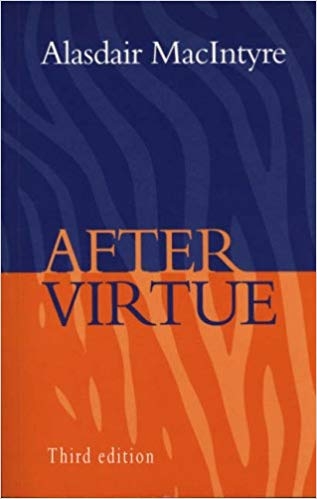 Top spot must go to Alasdair MacIntyre’s After Virtue (1981). A former Marxist turned Thomist, MacIntyre argued that the moral inheritance of the Enlightenment — the crucible of liberal values — was to strip human life of a sense of purpose or teleology. When morality is rendered merely a question of individual choice, the moral life becomes grounded in nothing other than subjective opinion. And on this flimsy basis, it has struggled to survive.
Top spot must go to Alasdair MacIntyre’s After Virtue (1981). A former Marxist turned Thomist, MacIntyre argued that the moral inheritance of the Enlightenment — the crucible of liberal values — was to strip human life of a sense of purpose or teleology. When morality is rendered merely a question of individual choice, the moral life becomes grounded in nothing other than subjective opinion. And on this flimsy basis, it has struggled to survive.
The choice we have before us, MacIntyre claimed, was Nietzsche or Aristotle (or St Benedict). He prophetically expresses the Gramscian moment as us waiting not for Godot but for a new “doubtless very different, St Benedict”. By which he means, the “construction of new forms of community within which the moral life could be sustained so that both morality and civility might survive the coming ages of barbarism and darkness”.
Another book worth reading alongside After Virtue would be John Gray’s Enlightenment’s Wake. Having been a J. S. Mill scholar for much of his academic life, Gray knows the enemy better than many of its proponents (Mill is a poster boy of classical liberalism). Given the preponderance of religiously minded people in the post-liberal quadrant, it is worth noting that atheists like Gray can equally flourish in this space.
2. Why Liberalism Failed, by Patrick Deneen
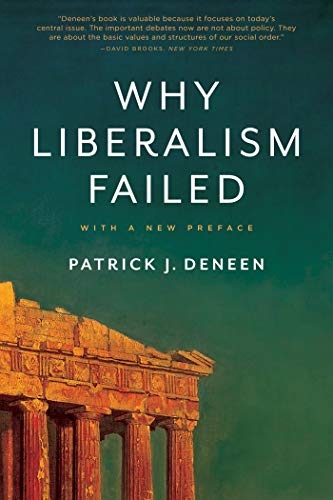 Second spot is shared by two very contrasting approaches, one from the Right and one from the Left. Patrick Deneen’s Why Liberalism Failed (2018) is a bracing attack on the borderlessness of the liberal self. It argues that what was designed to promote freedom instead undermined the very conditions — social, educational, religious — that made genuine freedom possible.
Second spot is shared by two very contrasting approaches, one from the Right and one from the Left. Patrick Deneen’s Why Liberalism Failed (2018) is a bracing attack on the borderlessness of the liberal self. It argues that what was designed to promote freedom instead undermined the very conditions — social, educational, religious — that made genuine freedom possible.
Deneen defends the importance of social institutions, from unions to churches to the family, that sustained human flourishing. And he points out that as human beings come to see themselves as fundamentally separate from each other, only the increasing power of the state can impose order on anarchy. Ironically, then, in the name of (negative) freedom, liberalism stimulates the state into greater acts of control.
Liberalism: the other God that failed
By contrast, Nancy Fraser’s essay in American Affairs ‘From Progressive Neoliberalism to Trump—and Beyond’ (2017) carefully articulates how progressive liberalism came to form an alliance with neo-liberal economics, to create what she calls the progressive neo-liberalism of the Clintons and Blair.
Not only does she show how the populism that catapulted Trump into the White House was built upon a dissatisfaction with this alliance, but also, more philosophically, how Left and Right liberalism are brothers-in-arms — a fact that is currently most obviously expressed in the woke capitalism of Silicon Valley and Big Tech.
3. The Road to Somewhere, by David Goodhart
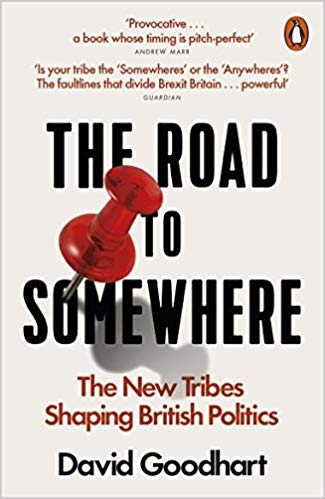 The Road to Somewhere by David Goodhart (2017) is credited with the introduction of the important terms ‘somewheres’ and ‘anywheres’ to distinguish between those who are bounded and rooted in place, and those who are mobile and rootless. Many smarted at this distinction, with its implication that those who have benefited from social mobility — or, at least, geographical mobility – have expressed some fundamental lack of loyalty to their community.
The Road to Somewhere by David Goodhart (2017) is credited with the introduction of the important terms ‘somewheres’ and ‘anywheres’ to distinguish between those who are bounded and rooted in place, and those who are mobile and rootless. Many smarted at this distinction, with its implication that those who have benefited from social mobility — or, at least, geographical mobility – have expressed some fundamental lack of loyalty to their community.
It's a bad time for an illegal immigration amnesty
Theresa May’s well known comment: “If you believe you are a citizen of the world you are a citizen of nowhere” presses further on this sensitive spot. But there is little doubt Goodhart’s terminology illuminates a central aspect of the populist complaint against liberal politics. This book can be usefully paired with Simone Weil’s The Need for Roots, first published in English in 1952.
4. Hillbilly Elegy, by J. D. Vance
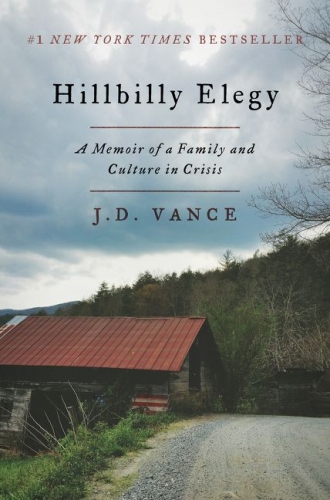 The defence of these ‘somewheres’, often derided as small-town, small-minded ‘deplorables’ is vividly captured by J. D. Vance’s brilliant Hillbilly Ellegy (2016), a sympathetic portrait of his upbringing in the Ohio rustbelt.
The defence of these ‘somewheres’, often derided as small-town, small-minded ‘deplorables’ is vividly captured by J. D. Vance’s brilliant Hillbilly Ellegy (2016), a sympathetic portrait of his upbringing in the Ohio rustbelt.
Likewise, Christophe Guilluy, in his The Twilight of the Elites (2019), describes how France has been fundamentally divided between the economically successful metropolitan centres and the un-chic periphery — a distinction he uses to explain the whole gilets jaunes phenomenon.
An elegy for the American Dream
5. Red Tory, by Phillip Blond
In the UK, the post-liberal moment was anticipated by Phillip Blond in his Red Tory (2010) and later by the Blue Labour movement. In the old terms of Left and Right, both were seen as political cross-dressers. Both regard capitalism and socialism as equally flawed, preferring instead something more like an economics of distributivism, where economic activity is subordinate to human interest — see Hilaire Belloc’s The Servile State (1912). For a quick guide to Blue Labour you could do worse than listen to Maurice Glasman’s Confessions or read Adrian Pabst’s The Demons of Liberal Democracy (2019).
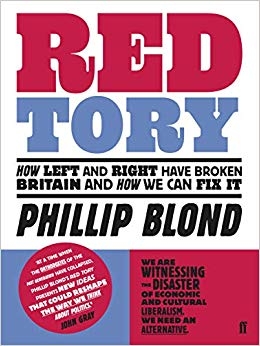
6. Liberalism and the Limits of Justice, by Michael Sandel
Earlier philosophical attempts to expose the limits of liberal politics included the development of communitarianism, associated with thinkers like Charles Taylor and (his student) Michael Sandel. Sandel’s Liberalism and the Limits of Justice (1982) is a more difficult book than one might expect from Radio 4’s user-friendly ‘public philosopher’, but it is an important milestone in the tradition — not least in the way that Sandel takes on John Rawls, in many ways the master thinker of 20th century liberalism.
And, qua Rawls, a special mention here must go to Katrina Forrester’s recently published In the Shadow of Justice: Postwar Liberalism and the Remaking of Political Philosophy (2019). But for my money the two great books of this tradition are Taylor’s magisterial Sources of the Self (1989) and his brilliant little polemic The Ethics of Authenticity (1992).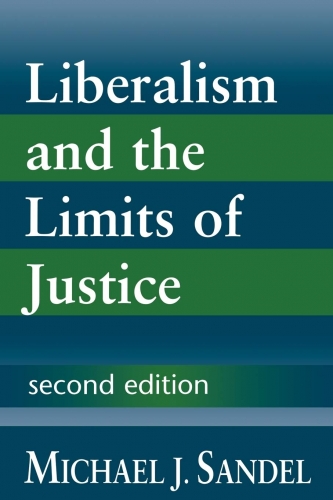
7. Theology and Social Theory by John Millbank
There is no doubt that post-liberalism — in contrast with many other 20th and 21st century ‘isms’ — has an influential and functioning theological wing. John Millbank’s Theology and Social Theory (1990) is a formidable statement of the argument. It is noteworthy that Phillip Blond began as a theology academic, Red Tory being in many ways an extension of the whole Radical Orthodoxy school that included people like Millbank and Rowan Williams.
How beauty shapes our fates
Within the church itself, it is Catholic social teaching, growing out of Pope Leo XIII’s Rerum Novarum (1891) and latterly expressed by Benedict XVI, that has proved to be especially influential. From Dorothy Day to Rod Dreher, it is not possible to capture the influence of Catholic social teaching in simple Left/Right terms. These are all Christian references, but pretty much all systems of religious belief carry both pre- and post-liberal convictions.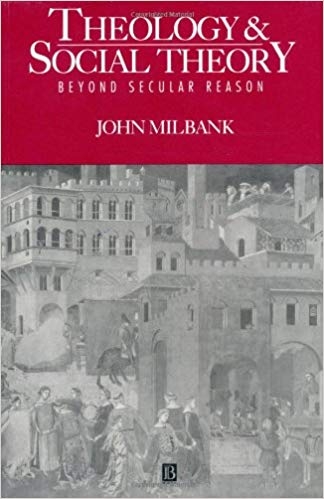
8. Why Love Matters, by Sue Gerhardt
Family life is often the entry point of former liberals into a more post-liberal sensibility. Having children often necessitates a certain rootedness, but also the lack of choice involved in who your children are or who your parents are exposes the limits of the liberal idea that we are all contractually related.
Why Love Matters: How Affection Shapes a Baby’s Brain (2004) by Sue Gerhardt is an important take on the science of early mother/child relationships. Pretty much anything by Donald Winnicott and John Bowlby on attachment would fit well under this category.
Why liberal feminists don't care
9. The World Beyond Your Head, by Matthew Crawford
The tradition which follows up on John Ruskin’s emphasis on beauty also feeds into post-liberalism. Roger Scruton on architecture, Jane Jacobs on the importance of neighbourhoods, and increasingly those who try and capture something of the dignity and spirituality of work.
Matthew Crawford’s The World Beyond Your Head (2015) is a brilliant diagnosis of the way in which the liberal Kantian self finds it hard to concentrate in a world of perpetual distraction.
Suggested reading:
The rise of the hippie conservatives
10. Prosperity without Growth, by Tim Jackson
Finally, the environment. Here, above all, the liberal idea of continuous and perpetual growth runs up against the distinctly post-liberal idea of the existence of limits. Tim Jackson’s Prosperity without Growth (2011) is of particular interest here. But the person I would read first is the Kentucky poet/farmer Wendell Berry. The World-Ending Fire (2019) is an astonishing collection of essays; The Unsettling of America: Culture and Agriculture (1977) is a work of genius.
This list is very much my own. Others will point to how much has been missed out. But if I were to design a kind of post-liberal curriculum, this is where I would start. In the UK, probably the most successful attempt to translate these ideas into some sort of political programme is that of the SDP’s New Declaration.
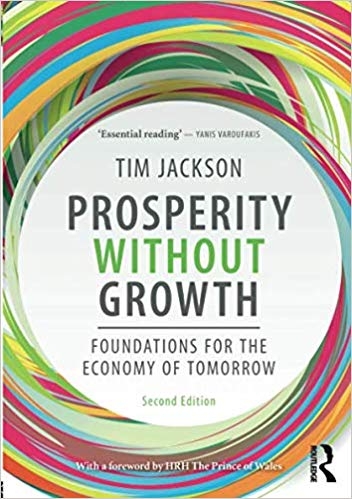 But despite the fact that many people exist within the quadrant it describes (Left on economics, Right on culture) it is still struggling to break through. It’s perhaps because it’s easier for the Right to break Left on economics than for the Left to break Right on culture — which is why the Conservative and Republican parties may be more amenable to this sort of thinking than their opponents. But even this is not a natural fit. Which brings us back to Gramsci. The old is dead. The new is yet to be born.
But despite the fact that many people exist within the quadrant it describes (Left on economics, Right on culture) it is still struggling to break through. It’s perhaps because it’s easier for the Right to break Left on economics than for the Left to break Right on culture — which is why the Conservative and Republican parties may be more amenable to this sort of thinking than their opponents. But even this is not a natural fit. Which brings us back to Gramsci. The old is dead. The new is yet to be born.




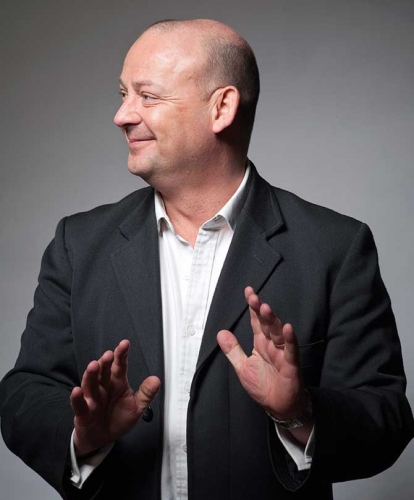 Dr Giles Fraser is a journalist, broadcaster and Rector at the south London church of St Mary’s, Newington
Dr Giles Fraser is a journalist, broadcaster and Rector at the south London church of St Mary’s, Newington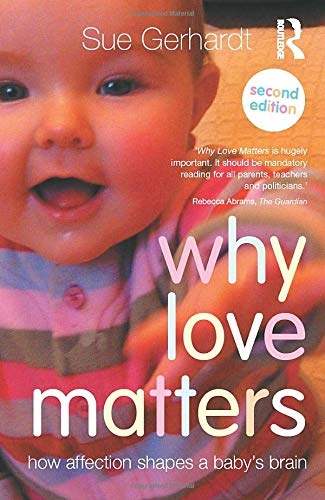
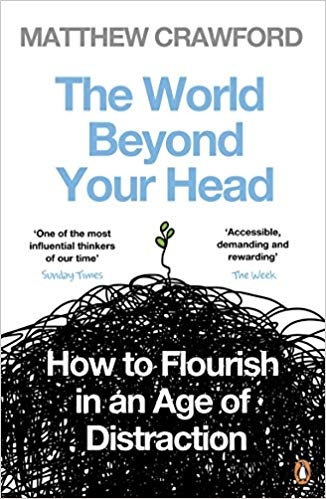

 del.icio.us
del.icio.us
 Digg
Digg
Les commentaires sont fermés.